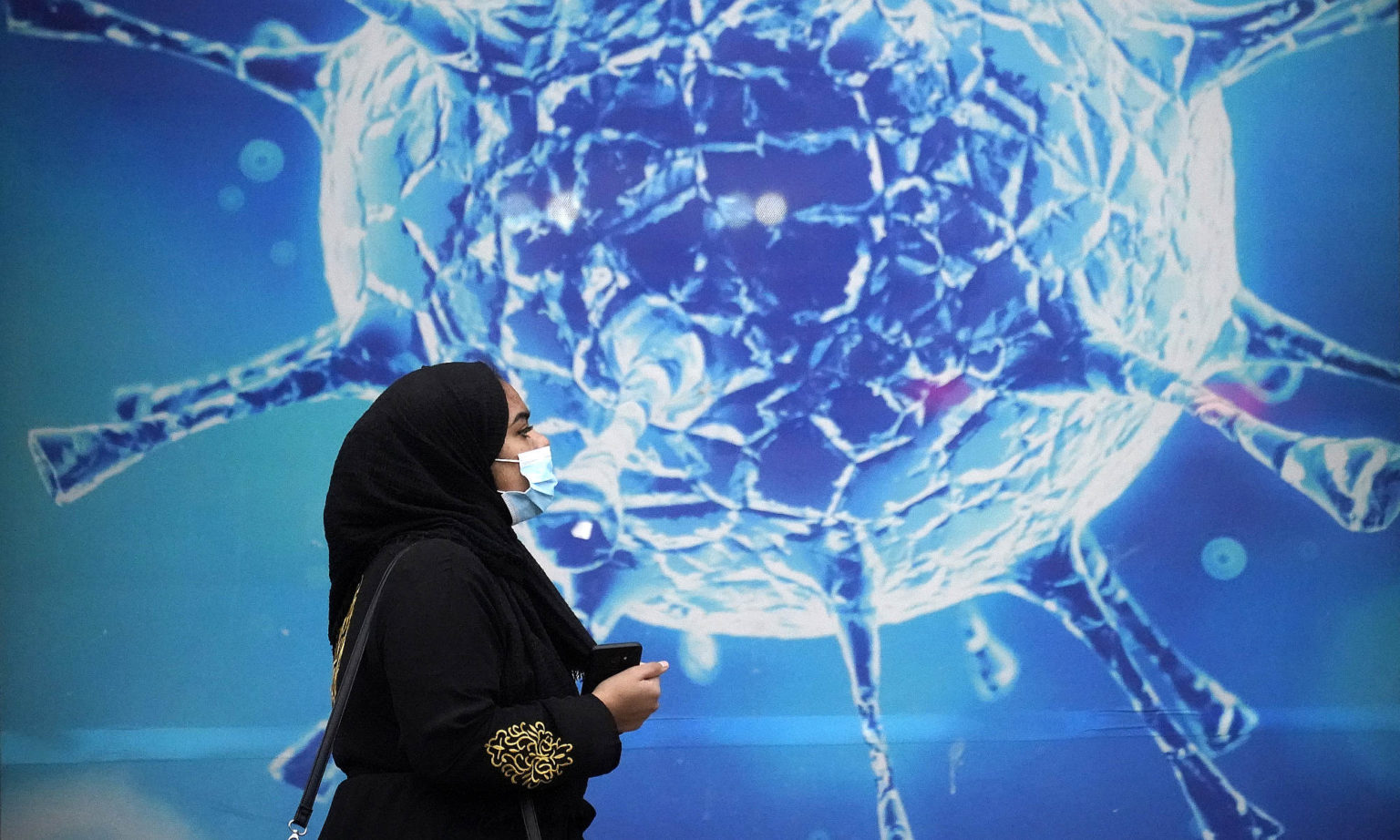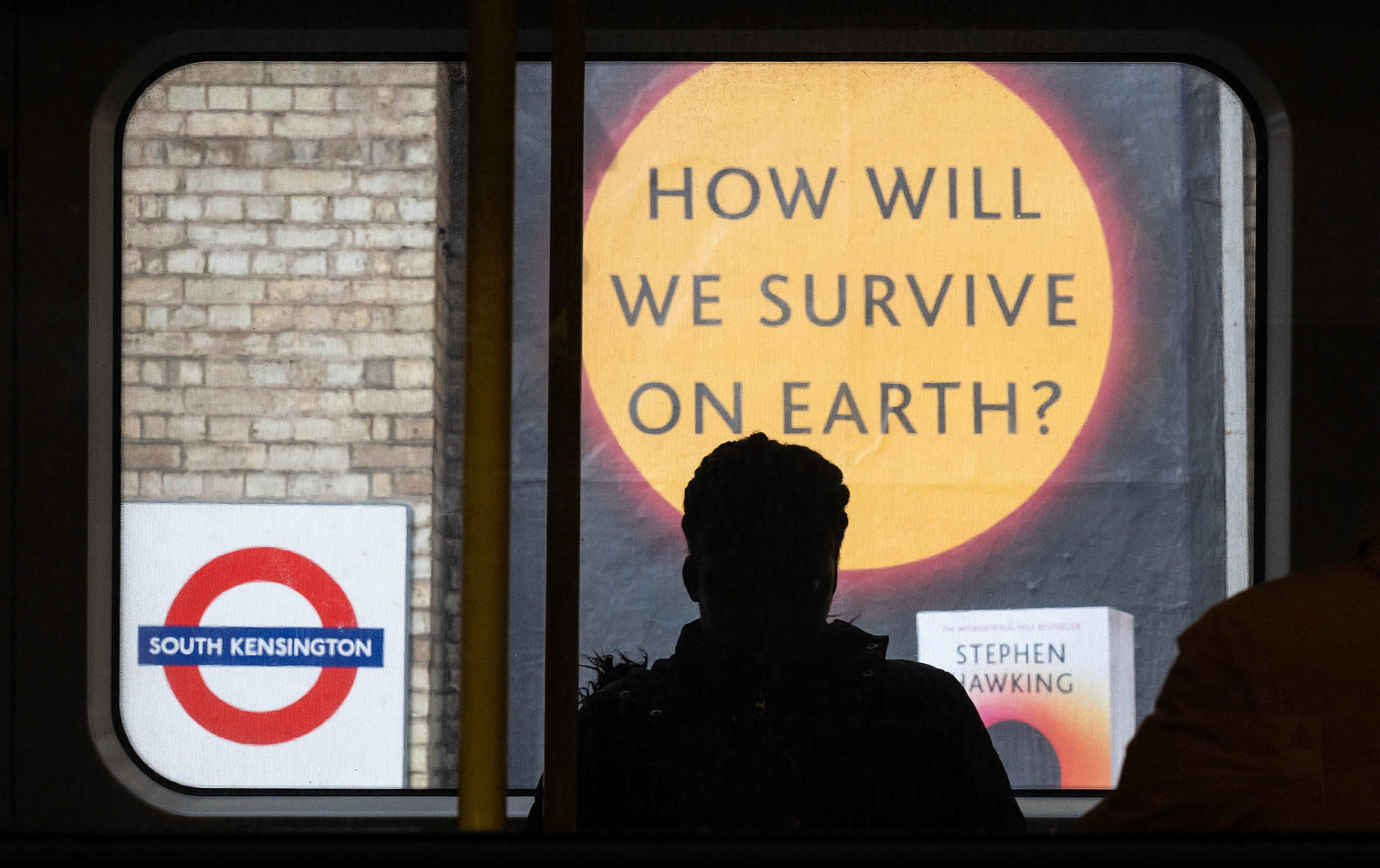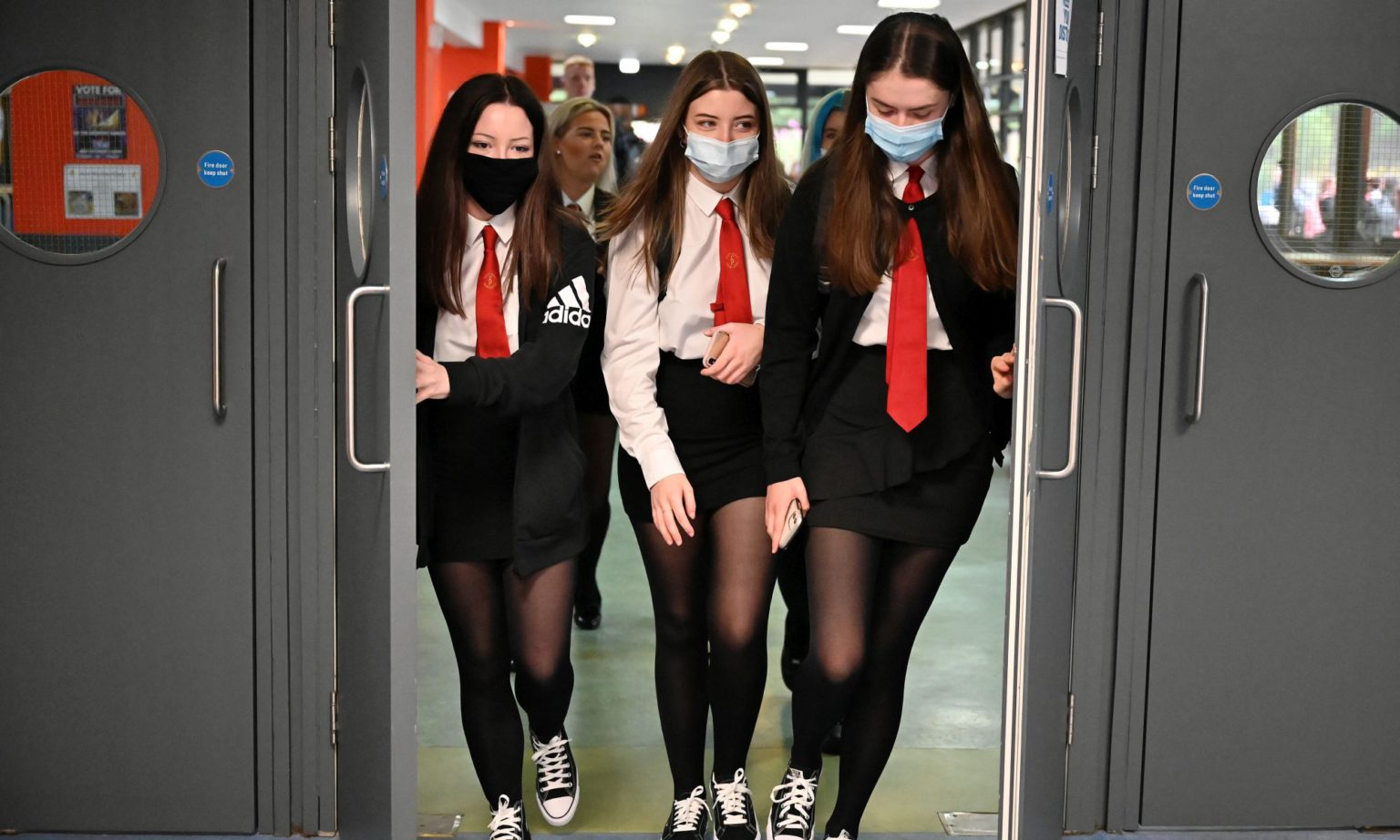
Long-read
Towards a fearless future
To break out of our locked-down world, we must dare to live freely again.
When governments the world over began imposing lockdowns in response to Covid-19 earlier this year, I was surprised by just how many people were comfortable with such measures. Nine months later, and little has changed. Millions, it seems, have learned to live in lockdown conditions. And many are so used to them – according to UK polls at least – that they actively desire their imposition.
It is in this context that public health has acquired a quasi-sacred status. Such is its moral authority now that even incredibly restrictive measures, from household-mixing bans to stay-at-home orders, can be justified in its name.
Indeed, over the course of this year, public-health concerns have succeeded in almost totally dominating political, economic and social life. Numerous commentators now even suggest that this will be the ‘new normal’ – in other words, that society from now on ought to be reorganised according to the imperatives of public health.
This is a fatalistic and morally impoverished vision of the future. It reduces life to mere survival and politics to the management of public health. Indeed, this is one of the most significant developments during the pandemic: the erosion of the line between health and politics. As a result, health has become politicised and politics has become medicalised.
One can see this in the way political rhetoric is now dominated by exhortations to ‘stay safe’ or ‘keep others safe’. It means that any behaviour or activity that appears to deviate from these demands is immediately condemned as reckless, irresponsible, a threat to the wellbeing of society.
The tyranny of public health has been a long time coming. In large parts of Western society, and many of its institutions, safety had already become a governing principle, and freedom a secondary concern.
This is perhaps best captured by the prevalence of the idea of the ‘safe space’. The speed with which this idea, hitherto the preserve of campus activists, became common currency has been extraordinary. This tells us just how receptive broader society was to the notion of safe spaces – because many already conceived of everyday interactions as risky, and safety as their overriding concern.
Unsurprisingly, to those who see safe spaces as desirable, the lockdowns and quarantines of this year really didn’t seem so bad. Indeed, some have explicitly interpreted their lockdown experiences in terms of the safe-space narrative. Jonathan Mayer, a professor emeritus of geography and epidemiology at the University of Washington, wrote that as danger, real or perceived, creeps closer, what we think of as unsafe space expands, ‘until it’s really anything outside the home’. A lockdown is thus reimagined as the creation of a society-wide safe space.
Trading off freedom for safety
One of the most unattractive features of the deification of safety is that it tends to subordinate the value of freedom. Within the contemporary Western moral framework, safety and security are first-order values, while freedom is, at best, reduced to a second-order one. (That is why hitherto taken-for-granted freedoms, such as that of free speech, are so often and so successfully targeted by advocates of cancel culture – because the safety of listeners is already assumed to trump the liberty of speakers.)
Admittedly, the relationship between freedom and safety has often been fraught. In numerous instances, the very human impulse to achieve safety was used by the powers-that-be as an excuse to limit the exercise of freedom. This point was recognised by Alexander Hamilton, one of the Founding Fathers of the United States. ‘Safety from external danger is the most powerful director of national conduct’, he wrote in November 1787. And he warned that ‘even the ardent love of liberty will, after a time, give way to its dictates’, which will ‘compel nations’ to ‘destroy their civil and political rights’. Rather fatalistically, Hamilton even suggested that ‘to be more safe, they at length become willing to run the risk of being less free’. Another Founding Father, Benjamin Franklin, famously countered that ‘those who would give up essential Liberty, to purchase a little temporary Safety, deserve neither Liberty nor Safety’.

Supporters of the freedom / safety trade-off claim that the liberties people enjoy need to be balanced with a community’s need for security. Sometimes this lapses into outright authoritarianism, as a ruler seeks to relieve people of the ‘burden’ of being free, in the name of protecting them. But the trade-off does not have to be quite so dramatic. Indeed, a version of the freedom / safety trade-off was also elaborated during the post-9/11 ‘war on terror’. Then – as now – the exigencies of safety and security were used to justify laws and procedures that limit civil liberty.
One of the most troubling dimensions of this elevation of safety over freedom is the relentless colonisation of people’s private lives. Advocates of expanding intrusive instruments of surveillance actively promote calls for a trading-off of privacy for safety. In many instances, citizens have been convinced to accept Big Brother watching them in order to keep them safe.
Not that depriving people of freedom actually makes anyone feel genuinely safe. Quite the opposite. The constant focus of policymakers and politicians on the issue of safety merely intensifies public anxiety and insecurity. This is because the future, which is turned into the concern of the protective state, appears beyond people’s control. As such, the future appears ever more uncertain, and ever more threatening. And human beings become so focused on their day-to-day survival that their increasingly passive and fatalistic orientation towards the future only deepens.
Much of this has come to the fore in our collective response to the pandemic. We have seen how the obsession with safety has had a paralysing effect on society. Faced with uncertainty and admittedly huge challenges, many have turned away and hunkered down. And this has undermined society’s capacity to engage with adversity. As the social critic Christopher Lasch put it, ‘Survivalism leads to a devaluation of heroism’.
Of course, we need to take sensible precautions to protect human life. But we also need to draw on our reserves of courage and the human spirit of solidarity to defeat the silent enemy. To overcome our unhealthy obsession with safety, we need to act like grown-ups and be prepared to leave our illusions about safe spaces behind.
The rise of the fragile self
With safety posited as the point to life, vulnerability now appears to characterise the human condition. This is a relatively new phenomenon. As I have shown elsewhere (1), up until the 1970s, the term vulnerability was rarely used in association with human qualities. It was not until the 1990s that this association gained widespread traction.
Today, vulnerability has been turned into humanity’s defining feature. Hence in popular culture, people are regularly described, sometimes even celebrated, as ‘fragile’, ‘damaged’, ‘broken’ or ‘scarred for life’.
This, sadly, is the message that children receive from society from the day they are born. The powerful mood of safetyism therefore deepens with every passing year, as generations of young people are socialised into perceiving themselves as ‘at risk’, ‘fragile’ and ‘vulnerable’.
Rethinking socialisation
New, so-called modern attitudes towards childrearing and education have played a major role in the transformation of safety into the foundational value of Western society. That’s because they have cultivated a sense of vulnerability and anxiety among young people. And, in doing so, they have marginalised ideals such as courage, which were once central to socialisation. As one historian of American childhood pointed out: ‘Convincing the child that his or her environment was risk-free was essential; teaching him or her to overcome risk with courage dropped away – a truly fundamental change.’ (2)
It is now generally agreed that something has gone awry in the way that young people are socialised. Simply put, we are failing to cultivate the habit of independence in the young. You can see this in the phenomenon of extended adolescence, in which younger adults have ceased to aspire to independence and seemingly fear growing up. This development has profound implications for intergenerational relations. In The Prime of Life, Steven Mintz claims that ‘separation from parents is critical for maturation, and for a growing number of the young, psychological independence is achieved more slowly than in previous generations’ (3).
In the Anglo-American world, the commitment to socialising children is especially weak. Indeed, as David Walsh noted in The Growth of the Liberal Soul, ‘the inability of liberal society to develop any institutional means of transmitting its own virtues’ has precipitated a cultural crisis (4). This is especially true of Anglo-American societies’ failure to transmit enlightened moral values to young people.
Socialising the young without transmitting the values of the past poses a serious problem. For it is impossible to engage with the future unless people are able to draw on the insights and knowledge gained through centuries of human experience. In this sense, the past is an indispensable human resource. It allows the young to gain an understanding of themselves through the experience and achievements of others before them. That understanding can then give them the confidence and strength to engage with the future.
But adult society has not been acquainting young people with the legacy of the past. Instead it has been tending to young people’s emotions, using therapeutic techniques to try to arm them with more self-esteem, confidence and resilience. But there is no psychological technique that can help children cultivate courage. And there is no therapeutic tool to encourage their sense of freedom.
Admittedly, some have proposed teaching children resilience or grit in schools, which means they at least recognise that today’s young people need to be more self-sufficient, less anxious and more determined. But this approach presents character as a technical accomplishment that can be trained, when it clearly is not. Character, rather, is a moral accomplishment. Judgement and courage are not skills in which one is trained. They are the products of experience, reflection and the gaining of wisdom.
To allow young people to become more self-sufficient and determined, and less fearful and anxious, society needs to rethink the way it socialises young people. In particular, we need to give up this one-dimensional reliance on therapeutic validation. And we need to take their moral education seriously, in particular the cultivation of their sense of courage, duty and judgement.

Most parents recognise this. They know that much more can be done to help their children gain greater independence. And they recognise that independence of thought and behaviour is key to developing the confidence to deal with one’s fears. As Aristotle put it, confidence ‘is the opposite of fear’ and that ‘what causes it is the opposite of what causes fear’.
Too much of contemporary culture militates against confidence. Through its fixation on emotional fragility, it intensifies our sense of dread and calls into question our capacity to deal with the threats we face. Such forms of socialisation, as we have seen, unwittingly serve as an invitation to safe spaces and, ultimately, to a life in lockdown.
Challenging vulnerability
We need to raise our expectations of children and young people if humanity is to become less fearful towards the future. This won’t be easy.
Naturally, parents, teachers and other adults want to protect children from harm. But routinely labelling and thinking of children as ‘vulnerable’ or ‘at risk’ does not so much keep them safe, as enslave adults in the maintenance of their safety. This effectively deepens and extends young people’s dependency on parents and adults. And, as a result, it deprives young people of many opportunities to learn about their strengths and weaknesses, develop their capacity for independent reasoning, and cultivate their moral autonomy.
It is all so unnecessary. Children do not need to be treated as emotionally fragile, vulnerable creatures, unable to deal with the pressures of life. Given the right direction, children, through their interaction with their peers and family members, can thrive. They can learn to manage risks and cope with the unanticipated challenges of life. Yes, such challenges can be distressing and fearful at times. But children should be allowed to develop their capacity to deal with disappointment and painful experiences.
So the young do need a more risk-taking and challenging environment if they are to develop. This will require a fundamental reorientation in the way that the adult world engages with them, and a more optimistic view of the capacity of people to overcome the obstacles thrown up in the course of their lives.
It is important not to confuse this call to challenge vulnerability with the attempt artificially to boost the way people think about themselves. Faddish psychological techniques are no help here. Rather, this challenge to vulnerability rests on providing children with a greater opportunity to experiment, and to take risks. For it is only through experience that young people will develop the confidence to deal with whatever life throws at them. Such confidence will enable them to appreciate many of the virtues – courage, duty, reason – that have allowed humanity to move forward in difficult circumstances.
Back in the 18th century, Immanuel Kant posed the question, ‘What is Enlightenment?’. He argued that it rested on people’s willingness and capacity to reason for themselves. This, Kant argued, was impeded by people’s ‘lack of resolution’ or ‘courage’ to use their understanding of the world. That is why Kant said the motto of the Enlightenment was Sapere Aude, which is translated, variously, as ‘Dare to know’, or ‘Have the courage to use your understanding’. For Kant, therefore, courage and the development of human reason went hand in hand.
Moreover, Kant argued that to reason for oneself, to ‘throw off the yoke of immaturity’, was to grow up. It meant no longer relying on the ‘guidance of another’ for one’s own decisions and judgement. This was the basis, as Kant saw it, of moral autonomy, the cornerstone of Enlightenment.
Kant recognised that there were obstacles to becoming independent in thought and deed. But these, he wrote, were self-incurred. If individuals were given the freedom to use their reason in public, he argued, they could rise to the occasion. They could ‘dare to know’. This is especially relevant right now as we seek to challenge the lockdown mentality.
The state of feeling vulnerable and fearful comes far too easily to people when they are not expected to take responsibility for the security of their community or for their personal lives. And facing Covid, this is what has happened. People have been told to remain passive, follow an ever-mutating set of rules and guidelines, and, ultimately, leave dealing with it to others. And, as a result, values like duty, courage and risk-taking become irrelevant. Yet it is precisely these values that are crucial to the development of an effective community response to the Covid pandemic.
It won’t be easy to cure ourselves of our addiction to safety. Certainly not straight away. But if we change our regime of socialisation, we have a chance of allowing the younger generations to see that there is much more to life than inhabiting a safe space.
Restoring the balance between public life and health
It is natural that all of us fear the threat posed by Covid. Just as it is natural that we are concerned about our personal safety and seek to minimise the risks. However, this does not absolve us of the responsibility to attend to the numerous challenges that confront us. We cannot lock down the world and pass off the consequences – from the non-education of our children to the helplessness of those parts of society who genuinely can’t look after themselves – as someone else’s responsibility.
This is why our freedom is no less important than our safety. Because it is only through living freely – making our own judgements, taking our own decisions and becoming more confident – that we can emerge from the self-incurred limits of our locked-down world.
This is why we need to restore the balance between public life and public health. We need to see ourselves not as a society of potential patients in need of the protection and the guidance of the authorities. Rather, we need to regard ourselves as a society of citizens. Hence we need to ensure that our children are encouraged to be independent, to experiment and to live freely. The pandemic must not be used as an excuse to turn potentially courageous young people into premature champions of safety.
Above all, we need to start by depoliticising health, and de-medicalising politics. This is vital if we are to restore a free society in the post-Covid era.
Frank Furedi’s latest book Democracy Under Siege: Don’t let Them Lock It Down is published by Zer0 Books.
All photos by: Getty Images.
(1) See ‘Vulnerability-Analytical concept or rhetorical idiom’, by Frank Furedi, in Talking Truth, Confronting Power, Trentham Books, 2008
(2) American Fear: The Causes and Consequences of High
Anxiety, by PN Stearns, Routledge, 2006, p102
(3) The Prime of Life, by S Mintz, Harvard University Press, 2015, p21
(4) The Growth of the Liberal Soul, by D Walsh, University of Missouri Press, 1997, p89
To enquire about republishing spiked’s content, a right to reply or to request a correction, please contact the managing editor, Viv Regan.









Comments
Want to join the conversation?
Only spiked supporters and patrons, who donate regularly to us, can comment on our articles.